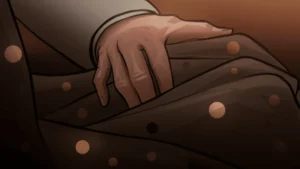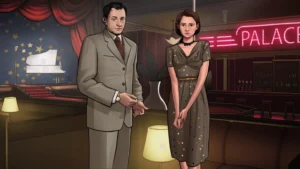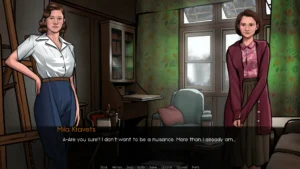
The Silver Lining
Play The Silver Lining
The Silver Lining review
Exploring the Intricate World of The Silver Lining Adult Game
The Silver Lining is an adult game that has garnered attention for its unique blend of storytelling and mature themes. This game delves into complex narratives, often exploring themes of intimacy and relationships. As players navigate through its engaging storyline, they encounter a world where characters face challenges that resonate deeply with the audience. In this article, we’ll explore the game’s core elements and what makes it stand out in the adult gaming scene.
Storyline and Themes
What Makes The Silver Lining Unique?
Picture this: You’re scrolling through adult games, tired of predictable plots where relationships feel shallow or rushed. 😴 That’s where The Silver Lining game smashes expectations! ✨ Unlike typical titles, it weaves mature storytelling in games into a tapestry of emotional depth and moral ambiguity. I remember my first playthrough—I expected titillation but got a philosophical gut-punch about sacrifice and redemption instead. 🥊
What sets it apart? Unique adult game narratives thrive on player agency. Your choices aren’t just “romance A or B”; they alter friendships, trigger betrayals, and even reshape the protagonist’s worldview. For example, choosing to protect a rival’s secret early on might later force them into a life-saving alliance. 🔄 The brilliance? Nothing feels black-and-white—every decision sits in haunting shades of gray. 🌫️
💡 Pro Tip: Play twice—once following your instincts, once opposing them. You’ll uncover radically different layers of the story!
Here’s a pivotal scene showcasing its narrative innovation:
| Scene | Player Choice | Narrative Impact |
|---|---|---|
| “Midnight Confession” (Chapter 4) | Reveal a character’s addiction to their family | Triggers intervention & recovery arc OR spirals into isolation and job loss |
Exploring Mature Themes
Adult game themes in The Silver Lining aren’t just edgy window dressing—they’re the backbone of its storytelling. 💀 We’re talking about raw explorations of grief, ethical compromise, and the fragility of sanity. One subplot had me reeling: a war veteran’s PTSD manifests as hallucinations where fallen comrades judge his survival guilt. 😨 It’s uncomfortable, yes—but it mirrors real struggles without sensationalism.
The game masterfully tackles systemic injustice too. In the “Broken Chains” arc, you navigate a corrupt healthcare system denying treatment to the poor. Your options? Play by the rules and watch patients suffer, or forge medical records and risk prison. 🏥⚖️ This isn’t shock value; it’s social commentary woven into interactive drama.
Key themes handled with rare nuance:
– Addiction: Shown as cyclical relapse, not a “cure-all” quest.
– Consent: Romantic scenes emphasize ongoing communication, not implied assumptions.
– Class divide: Wealth disparities affect dialogue options and character trust.
😮💨 I’ll admit—I rage-quit once after my “noble” choice got a character killed. But that’s the point: mature storytelling in games should unsettle, challenge, and linger.
Character Development and Depth
Forget cardboard cutouts—The Silver Lining crafts characters who evolve (or unravel) based on your actions. 🎭 Take Aris, your sharp-tongued ally. Early on, she’s all sarcasm and walls. But help her reconcile with her estranged brother? She slowly shares trauma about their abusive past, altering how she reacts to crises. That’s character development in adult games done right: organic, earned, and painfully human. 👥
What fascinates me? Even antagonists have motivational depth. The corporate villain Elena isn’t “greedy because evil”—her backstory reveals a bankrupt family she’s desperate to shield. 💼❤️🩹 This complexity forces moral dilemmas: Do you expose her embezzlement knowing it orphans employees?
🚀 Actionable Insight: Track relationships via the in-game “Ties That Bind” journal. Noting how side characters react to your ethos (selfish vs. altruistic) reveals hidden narrative branches!
The protagonist’s growth is equally dynamic. Start as a disillusioned journalist chasing scoops? Your ethics shift if you prioritize compassion over headlines. 📸➡️🤝 By the finale, my character had abandoned careerism to run a community shelter—a transformation that felt utterly mine. That’s the magic of The Silver Lining game: it doesn’t just tell a story; it makes you live its consequences. 🌟
🔥 Final Thought: This isn’t “adult” just for romance or violence—it’s about treating players like emotionally intelligent beings. And that’s a revolution worth playing.
In conclusion, The Silver Lining offers a unique blend of storytelling and gameplay that resonates with players seeking mature themes in adult games. By exploring its narrative, mechanics, and community reception, we can understand why it stands out in the adult gaming scene. For those interested in engaging narratives and interactive storytelling, The Silver Lining is certainly worth exploring.









